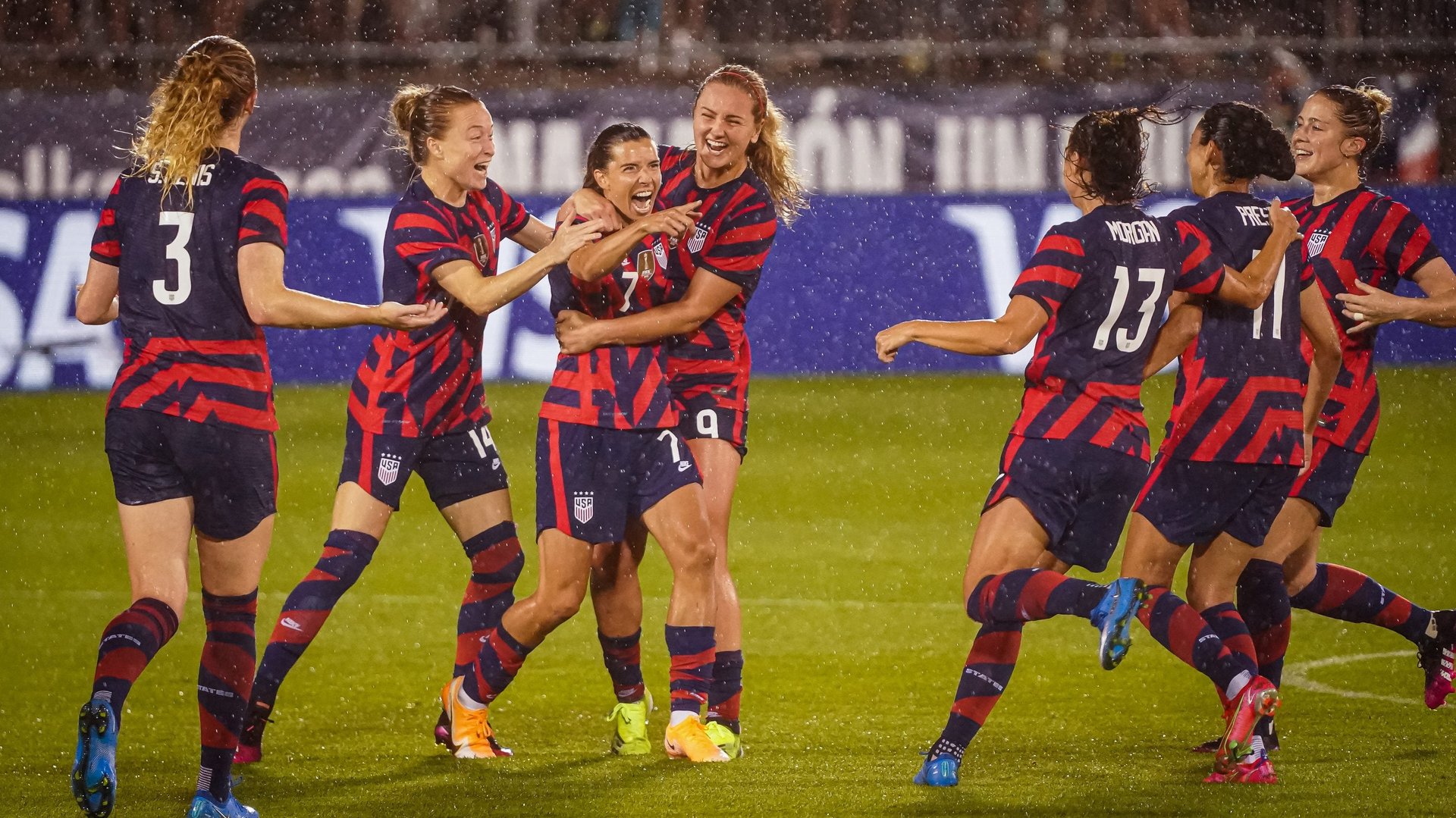US women’s soccer got a rare win in the fight against gender pay gaps
The US soccer federation has reached a multi-million dollar settlement with the US women’s national soccer team (USWNT), bringing a six-year battle over pay discrimination to a close.


The US soccer federation has reached a multi-million dollar settlement with the US women’s national soccer team (USWNT), bringing a six-year battle over pay discrimination to a close.
US Soccer has agreed to pay $22 million to current and former USWNT players who sued the federation in 2019 for gender discrimination, as well as set up a $2 million charitable fund for women’s and girls’ soccer. It also pledged to equalize pay between the men’s and women’s national teams in their next collective bargaining agreements. The settlement is contingent on the ratification of a new labor contract with the women’s players union; their current deal expires next month.
“It’s really good news that they were able to reach a settlement like this,” says David Berri, a professor of economics at Southern Utah University and co-author of The Wages of Wins. “There were a lot of forces working against them.” The USWNT’s fight brought the longstanding issue of pay discrimination in professional sports to the fore, but their achievement remains rare, for now.
Settlement puts end to years-long legal battle
USWNT first filed a complaint to the Equal Employment Opportunity Commission in March 2016, a year after they won the World Cup in Canada. The USWNT noted that they generated $20 million more in revenue than the men’s team in 2015, according to US Soccer financial reports, but were paid just a quarter of what their male colleagues earned.
In the years that followed, USWNT players became more engaged in labor negotiations with their union and eventually sued US Soccer in 2019, alleging “institutionalized gender discrimination.” By the time the women’s national team competed in—and won—the World Cup in France in 2019, their battle for pay equity was well known among fans.
But USWNT’s dominance on the world stage wasn’t enough to win its case in court. In May 2020 a federal judge dismissed their claims about receiving lower pay than the US men’s team, but US Soccer indicated they were willing to continue negotiations. The federation announced in November it had offered identical contracts to the players associations of both the men’s and women’s national teams, a step that eventually led to the settlement announced today.
“Getting to this day has not been easy,” USWNT and US Soccer said in a joint statement. In the time that US Soccer waged its fight against the lawsuit, two players who signed on to the original EEOC complaint retired.
A rare win for advocates of gender pay equality
The USWNT’s case captured “a lot of the history of sexism and discrimination that women have faced for a century in sports,” says Southern Utah University’s Berri. It resonated with other professional athletes fighting similar battles, too: Canada’s female soccer team, women’s National Basketball Association players, and the US women’s hockey team all reached out to USWNT in recent years for advice negotiating pay and working conditions.
Still, the settlement announced today is a rare achievement that may be hard to replicate across other sports leagues, where gender pay gaps persist and decision-makers are still mostly men. For female athletes that don’t have much leverage, “the only way they can negotiate is in the court of public opinion,” Berri says. USWNT had more bargaining power because they’ve grown their fan base and audience over the last few years, “and even in that circumstance, it was really really difficult.”
Still, soccer star Megan Rapinoe expressed hope today that the USWNT has spurred other professional athletes to successfully lobby for equal pay. The US women’s national hockey team, for example, received a pay raise in 2017 by threatening to boycott the world championships.
“It seems like everywhere you look, here we are performing well beyond just the constraints of our sport,” Rapinoe said on the Today show. “We are really in the midst of a an incredible turning point in women’s sports.”